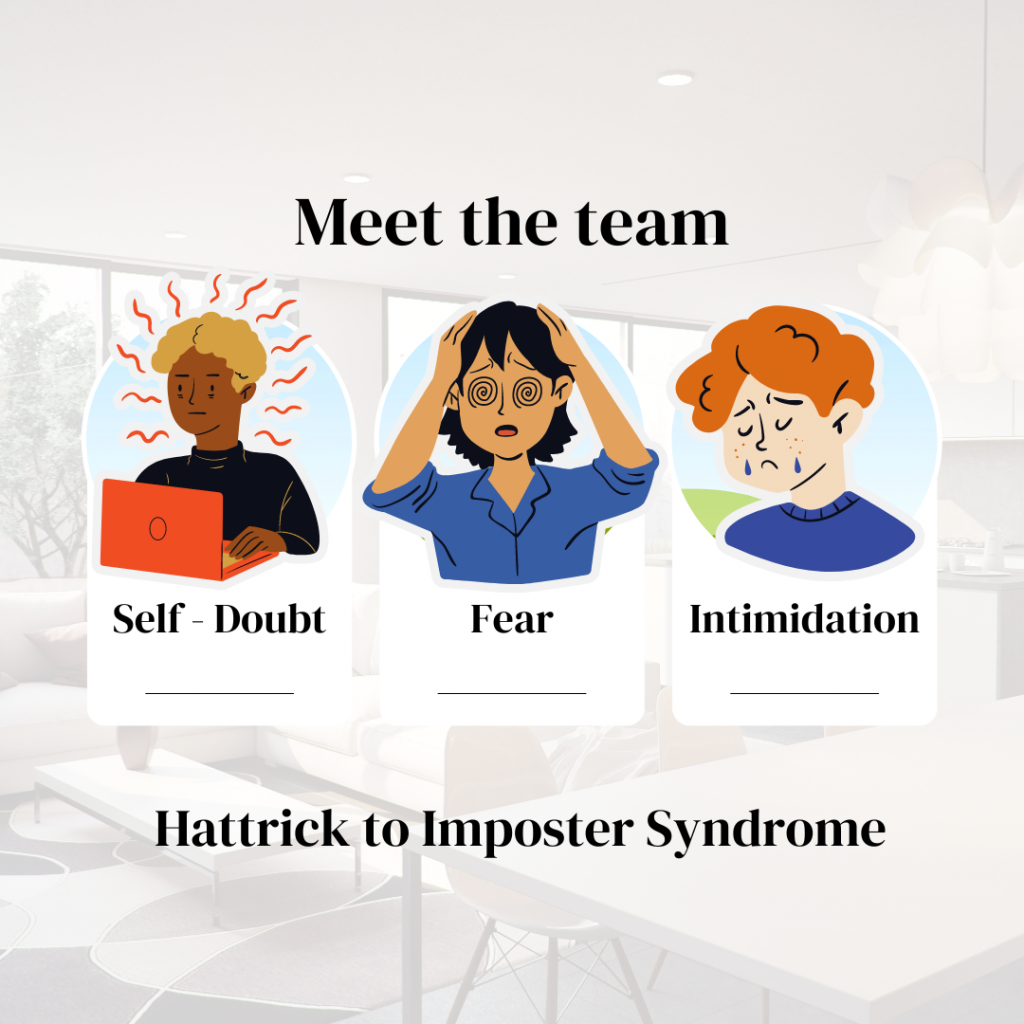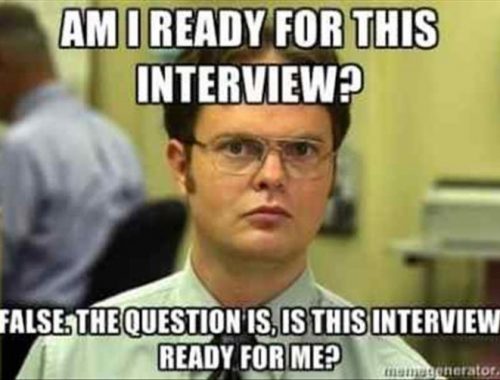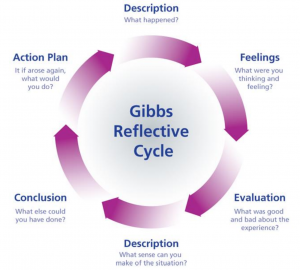Subject : Meet the Team

Subject: Meet the Team
Why meeting your co-workers can be so intimidating
I refuse to believe I am the only one these words fill with dread. Don’t get me wrong I like to view myself as extroverted and friendly at work, but after you have meticulously prepared for an interview, meeting your seniors without a script is a daunting prospect. Incorporate some imposter syndrome, different personalities and some stage fright you have got yourself a workplace hurdle. Here is my training guide, utilising the Gibb’s reflective cycle, recommended literature and the sweet benefit of hindsight.
My choice to utilise Gibbs’ model was based upon multiple factors. I sought for the reflective practise framework used by my desired employer: the National Health Service (NHS). I found that different trusts throughout the NHS were promoting Gibbs’ model, or a comparable modification (Thornalley, 2021). This seemed like a fitting opportunity to become familiar with their specific framework in order to adequately prepare for assessment centre tasks and interviews. The lucid design breaks an experience down into easily digestible segments which is highly appealing for a beginner to reflective practice.
One of the significant drawbacks to this model is that the perspective considered is singular. There is no rigid opportunity to account for the experience of others, which is intrinsic to the culture and core values of the NHS, that ‘everyone counts’ (NHS Health Education England, (no date)). However, being conscious of this omission means special care can be taken to ensure different perspectives, circumstances and personal biases can be documented and analysed in the second opportunity to describe, after evaluating what went well and what did not. Experience gained from my English degree puts me in a privileged position to carefully consider, analyse and evaluate an array of angles of an experience. This helps protect the model from ‘reducing’ an event to ‘instances of standard categories […] and make sense of their uniqueness’ (Schön, 2016).
DESCRIPTION
‘What happened?’
(Gibbs, 1988)

The experience I wish to reflect upon was a zoom meeting set up by my mentor with the CEO and deputy CEO of the Charity organisation in my second week on the job. I knew I was extremely fortunate to have one to one exposure with such senior colleagues so quickly but felt so intimidated that it felt I did not make the first impression I hoped to. The virtual aspect made it very challenging to anticipate when each person would begin talking and meant at times, I unintentionally interrupted my colleagues. This only built on fears that my speech was unclear and hesitant.
FEELINGS
‘What were you thinking and feeling?’
(Gibbs, 1988)
This left me feeling nervous, incompetent and self-conscious. Misreading the social queues through a virtual platform made it feel like all experience I had gathered up until this point had been in vain as it suddenly, I was a sixteen year old again in a first job interview. Along with my confidence taking a hit, I felt a familiar sense of imposter syndrome set up camp in my chest. As the meeting continued rather than settle into the conversation, I found I was stuttering and repeatedly making speech errors as my focus had drifted from the present to the previous aspects of the conversation.
EVALUATION
‘What was good and bad about the experience?’
(Gibbs, 1998)
A positive take away was the chance to network with senior colleagues and gain an interesting, in depth understanding of the third sector world and how different charitable organisations can (and cannot) work together. This was a privileged position of knowledge and was fantastic for further career development as I am hoping to work within the NHS which thrives through an interagency approach to healthcare. However, the experience knocked my confidence and made me worry about not making a good impression on important members of the team. As this was so early on, a main concern was that how I represented myself in this meeting, would be my lasting impression. Especially, as the CEO would not witness my day to day work, as my supervisor would.
DESCRIPTION / ANALYSIS
‘What else can you make of the situation?’
(Gibbs, 1988)
Usually, displaying good communication and interpersonal skills are an opportunity for me to impress a new employer. They are skills I have carefully honed through every job up to date.
As this is not how my initial interview with the company had played out, which was with the deputy CEO, it struck me that my nerves may be a result of multiple factors. Firstly, a gendered dynamic, Mr Robinson the CEO, was the most important in the company and so far, I had only conversed with women. Employment relationships are ‘affected by the degree of power that each party has’ (Bingham, 100) and ‘not taking aspects of gender and its impact into account would be inadequate’ (Bingham, 106). It appears that subconscious internal biases had played a part in my reaction. Secondly there was a stark difference in personalities, between him and other colleagues I had already met. His register was direct and concise, as is required of someone so senior, but this contributed to my falter as I was not immediately at ease.
CONCLUSION
‘What else could you have done?’
(Gibbs, 1988)
There are many different approaches that I could adopt in order to avoid a repeat of this situation. I could practise and rehearse possible questions, in a format similar to interview preparation but this would not be adaptable to all eventualities and therefore could lead to further panic and stress. I would also worry that this would become a structure I would become dependent upon. I could also try step out of my comfort zone and seek out networking opportunities as a way to practise engaging with those in more senior positions, without the pressure of joining a new company.
ACTION PLAN
‘If the situation happened again, what would you do?’
(Gibbs, 1988)
As it is not always feasible to be able to rehearse individual scenarios interview practise would only get me so far, my future actions would be as follows. I would prioritise taking a moment to compose myself before joining any meeting to calm myself to reduce all possible excess panic. But most importantly, I would try to be present and enjoy these opportunities because ‘you must have a good time meeting people, if you expect them to have a good time meeting you’ (Carnegie, 72).
Bibliography
Bingham, C. (2016). Employment Relations: Fairness and Trust in the Workplace. London: Sage Publications, pp
Carnegie, D. (2006). How to Win Friends and Influence People. UK: Vermillion, pp 70-72.
Clark, R and Kreps, J. (1975). SEX, AGE, AND WORK: The Changing Composition of the Labour Force. Baltimore and London: The John Hopkins University Press, pp
Forrester, Dr M. (2020). “Reflection and Reflective Writing”. [Online]. Edinburgh Medical School. [Accessed 01.11.2022]. Available from: https://www.clinicaleducator.org/en-gb/resource/735#:~:text=They%20can%20be%20a%20really,for%20personal%20or%20professional%20development.
Gibbs, G. (1988) Learning by Doing: A Guide to Teaching and Learning Methods. Oxford: Oxford Unit.
NHS, H E E. (no date). “The NHS Constitutional Values Hub”. [online]. NHS Health Education England. [Accessed 01.11.2022]. Available from: https://www.hee.nhs.uk/about/our-values/nhs-constitutional-values-hub-0.
Schön, D A. (1995). The Reflective Practitioner: How Professionals Think in Action. England: Ashgate, pp 140.
Thornalley, C. “An Introduction to Reflective Writing Resources for Further Study”. [online]. NHS Brighton and Sussex Library and Knowledge Service. [Accessed 01.11.2022]. Available from: https://www.bsuh.nhs.uk/library/wp-content/uploads/sites/8/2021/11/reflective_writing_resource_list_2021.pdf.
BLOG ENTRY:1
You May Also Like

The World of Theatre upon Reflection
30 November 2022
“Fake it ‘til you make it!”: Finding Success in a Simulated Interview
22 February 2023

